The fall season brings forth a cornucopia of delights, and among them is the humble pumpkin.
Beyond being a staple in seasonal recipes and décor, pumpkins have gained attention for their potential health benefits for both humans and their furry companions.
But can dogs really eat pumpkins?
In this comprehensive guide, we’ll delve into the nutritional value of pumpkin, its potential benefits for dogs, how to incorporate it into their diet, and precautions to consider.
Contents Overview
What are Pumpkins
Pumpkins are a type of squash that belong to the Cucurbitaceae family. They are known for their round shape, vibrant orange color, and thick outer rind. Typically grown in the fall, pumpkins are commonly associated with Halloween decorations and Thanksgiving dishes like pumpkin pie. While often used for carving or ornamental purposes, pumpkins are also versatile in cooking, lending their sweet and earthy flavor to soups, stews, desserts, and even beverages.
The Nutritional Value of Pumpkin
Pumpkin isn’t just a festive decoration; it’s also a nutritional powerhouse for both humans and dogs alike. Rich in vitamins, minerals, and fiber, pumpkin offers a plethora of health benefits. Here’s a breakdown of its nutritional content:
- Vitamins: Pumpkin is loaded with essential vitamins such as A, C, and E, which support overall health and immune function in dogs.
- Minerals: It contains minerals like potassium and iron, crucial for maintaining proper bodily functions.
- Fiber: Pumpkin is an excellent source of dietary fiber, aiding in digestion and promoting gastrointestinal health in dogs.
- Low in Calories: For pups watching their waistlines, pumpkin is a low-calorie treat option.
Can Dogs Eat Pumpkins safely?
Yes, dogs can safely eat pumpkins in moderation. Pumpkins offer several health benefits for our canine friends. The fiber content in pumpkins can aid in digestion and regulate bowel movements, which is beneficial for dogs with gastrointestinal issues. Additionally, pumpkins are low in calories and fat, making them a healthy treat option for dogs looking to maintain a healthy weight. The beta-carotene found in pumpkins is converted into vitamin A in the body, promoting good vision and a strong immune system in dogs. However, it’s essential to feed them plain, cooked pumpkin without any added sugars or spices, as these can be harmful to dogs’ digestive systems. Always consult with your veterinarian before introducing new foods to your dog’s diet.
Potential Benefits of Pumpkins to Dogs
Pumpkins offer several potential benefits to dogs:
- Digestive Health: The high fiber content in pumpkins can aid in digestion and regulate bowel movements, alleviating issues such as constipation or diarrhea.
- Weight Management: Pumpkins are low in calories and fat, making them a nutritious option for dogs looking to maintain a healthy weight or shed excess pounds.
- Nutrient Boost: Pumpkins are rich in vitamins and minerals, including vitamin A, vitamin C, and potassium, which contribute to overall health and well-being in dogs.
- Immune Support: The beta-carotene in pumpkins is converted into vitamin A in the body, supporting a strong immune system and promoting good vision in dogs.
- Hydration: Pumpkins have a high water content, which can help keep dogs hydrated, especially during hot weather or after vigorous exercise.
Potential Risks and Precautions of Feeding Pumpkins to Dogs
While pumpkins offer potential benefits to dogs, there are also some risks and precautions to consider:
- Portion Control: Too much pumpkin can lead to gastrointestinal upset in dogs, including diarrhea or vomiting. It’s essential to introduce pumpkins gradually into their diet and monitor their response.
- Avoid Added Ingredients: Feeding dogs pumpkin pie filling or canned pumpkin with added sugars, spices, or preservatives can be harmful to their digestive system. Stick to plain, cooked pumpkin when feeding it to your dog.
- Allergic Reactions: Although rare, some dogs may be allergic to pumpkins. Watch for signs of allergic reactions such as itching, swelling, or difficulty breathing, and discontinue feeding pumpkins if any adverse reactions occur.
- Potential Blockages: Pumpkin seeds, while nutritious, can pose a choking hazard or cause intestinal blockages in dogs if consumed in large quantities or not properly chewed. Remove seeds and stringy pulp before feeding pumpkin to your dog.
- Underlying Health Conditions: Dogs with certain health conditions, such as diabetes or pancreatitis, may need to avoid high-fiber foods like pumpkins or require special considerations. Consult with your veterinarian before introducing pumpkins into their diet.
Safe Ways to Feed Pumpkins to Dogs
There are several safe ways to feed pumpkins to dogs:
- Plain, Cooked Pumpkin: Cooked pumpkin without any added sugars, spices, or preservatives is the safest option for dogs. You can steam, bake, or boil pumpkin and then mash or puree it before feeding it to your dog.
- Pumpkin Puree: Make a simple pumpkin puree by blending cooked pumpkin until smooth. This can be mixed into your dog’s regular food as a tasty and nutritious addition.
- Frozen Pumpkin Treats: Freeze pumpkin puree in ice cube trays or silicone molds to create frozen treats for your dog. These can be a refreshing snack, especially during hot weather.
- Pumpkin Dog Treats: Consider making homemade pumpkin dog treats using dog-friendly recipes. Look for recipes that use simple, wholesome ingredients and avoid added sugars or spices.
- Pumpkin Added to Meals: Add a small amount of plain, cooked pumpkin to your dog’s regular meals as a topping or mix-in. This can provide added flavor and nutrition to their diet.
- Pumpkin Supplements: If you’re concerned about portion control or want a convenient option, there are pumpkin supplements available in various forms, such as powder or chews, specifically designed for dogs.
When to Avoid Pumpkins to Dog
- Allergies: If your dog has a known allergy to pumpkins or other ingredients commonly found in pumpkin-based foods, it’s best to avoid feeding them pumpkins.
- Underlying Health Conditions: Dogs with certain health conditions such as diabetes, pancreatitis, or digestive issues may need to avoid high-fiber foods like pumpkins. Always consult with your veterinarian before introducing pumpkins into their diet.
- Unsupervised Consumption: Avoid leaving large quantities of pumpkin or pumpkin-based treats accessible to your dog, as overconsumption can lead to digestive upset or other health issues.
- Added Ingredients: Steer clear of pumpkin products with added sugars, spices, or preservatives, as these can be harmful to your dog’s health and digestion. Stick to plain, cooked pumpkin when feeding it to your dog.
- Before Surgeries or Medical Procedures: If your dog is scheduled for surgery or a medical procedure, it’s best to avoid introducing new foods like pumpkins beforehand to prevent any potential complications during anesthesia or recovery.
Safe and Suitable Alternatives of Pumpkins for Dogs
If pumpkins aren’t the right fit for your dog, there are several safe and suitable alternatives to consider. Sweet potatoes are a nutritious option, packed with vitamins, minerals, and fiber. They can be cooked and served plain or as part of homemade dog treats. Carrots are another excellent choice, low in calories and high in fiber and beta-carotene. Green beans are a crunchy and low-calorie option that can be served raw, steamed, or frozen as a refreshing snack. Apples, without seeds or cores, provide a crunchy texture and natural sweetness while offering vitamins and antioxidants. Always introduce new foods gradually and monitor your dog’s reaction, and consult with your veterinarian for personalized dietary recommendations.
Bottom Line
In conclusion, pumpkin can be a nutritious and delicious addition to your dog’s diet, offering a range of health benefits from improved digestion to weight management. By understanding its nutritional value, and potential benefits, and incorporating it safely into your dog’s meals, you can harness the power of this seasonal superfood to keep your furry friend happy and healthy year-round. So, the next time you’re carving jack-o’-lanterns or whipping up a pumpkin pie, don’t forget to share some pumpkin love with your canine companion!



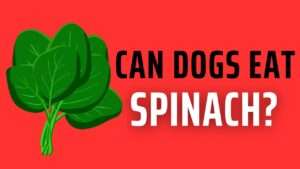

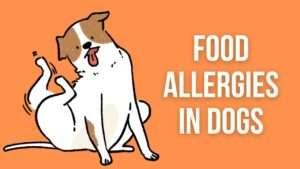

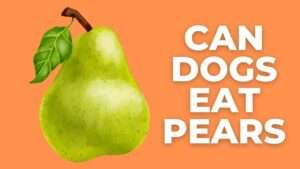



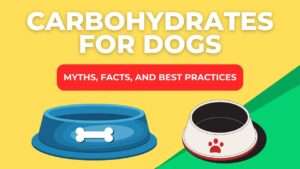



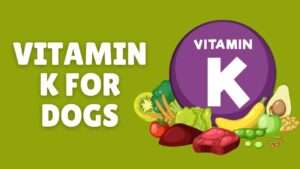


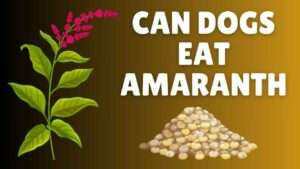

















+ There are no comments
Add yours